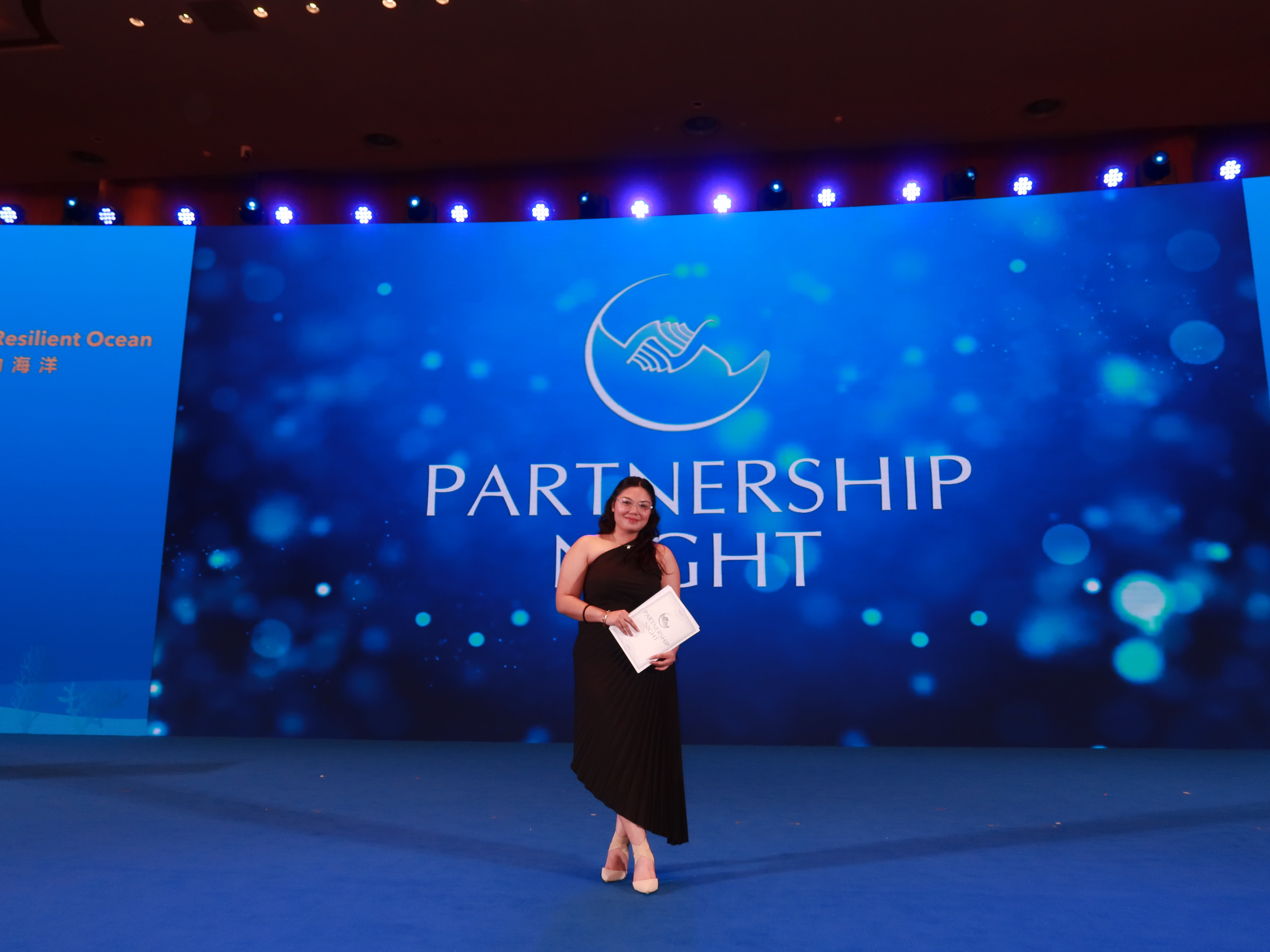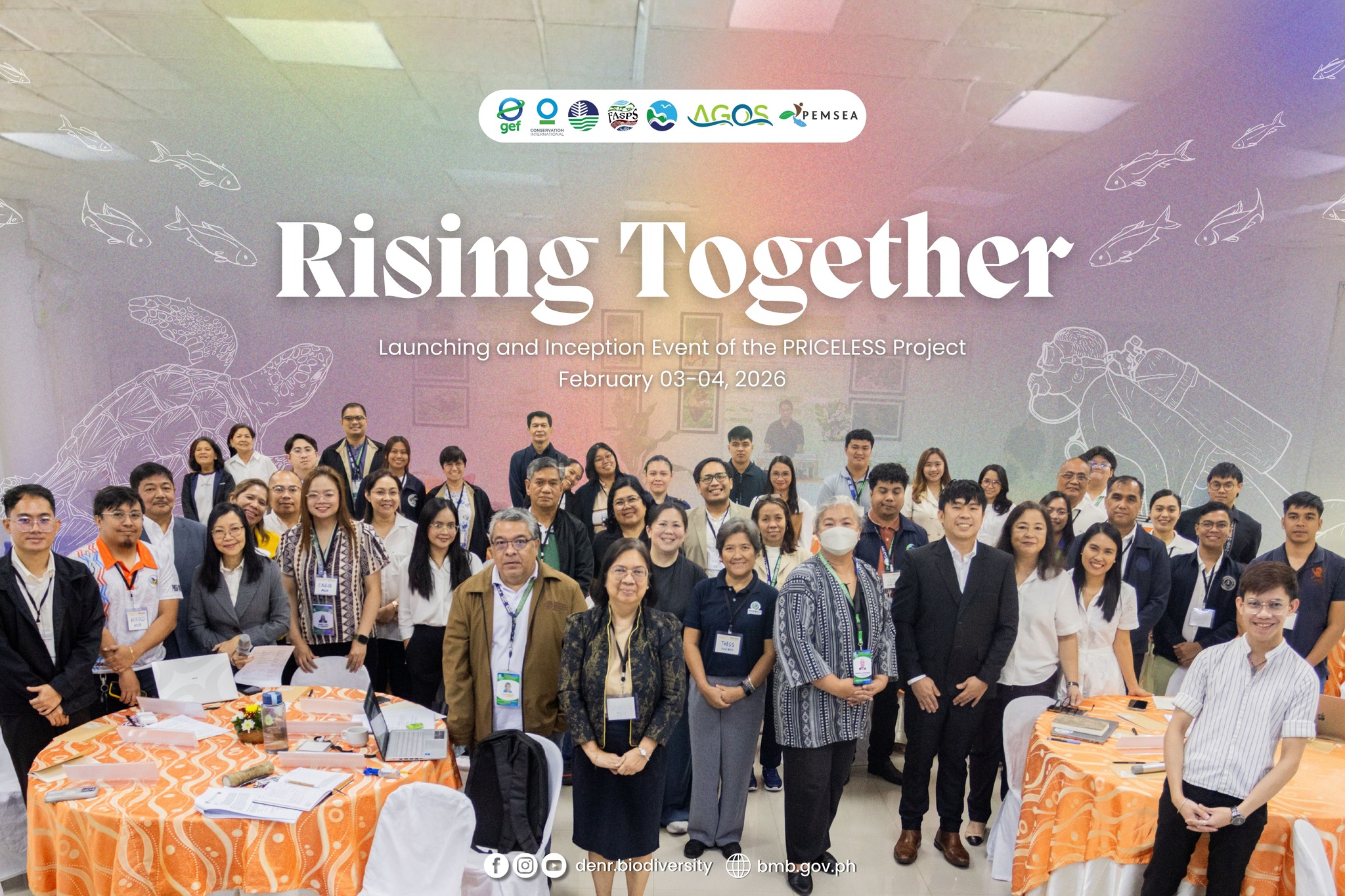From Intern to Insider: A Fresh Grad’s Front-Row Seat to Regional Cooperation
Friday, 30 May 2025

Fresh out of university, Jeanne Francesca Cortez, PEMSEA's Secretariat and Training and Capacity Development Assistant, writes about her journey from being an intern to sitting where ocean policy decisions are made.
Youth are increasingly recognized as vital contributors to addressing global challenges. However, meaningful participation in ocean governance remains predominantly limited to those with technical expertise, often sidelining young voices who bring essential perspectives on long-term sustainability. As a recent International Relations graduate, I found it daunting to enter this field—many entry-level positions required years of experience, making opportunities feel out of reach. I’m especially grateful to PEMSEA for opening doors: transitioning from an intern to a full-time assistant has given me a rare opportunity to engage directly with regional cooperation efforts and gain firsthand experience in ocean governance.
Not a scientist? No problem
When I started, I lacked the scientific or technical background many assume is needed in this field. I began as a research intern and gradually moved through various roles, learning the ins and outs of the organization, their regional partnerships, and access to decision-making processes. I learned growth isn’t just about having all the right knowledge upfront. It’s about learning on the job, through real tasks like drafting documents, conducting research, participating in meetings, and liaising with partners.
One of my formative experiences was supporting PEMSEA’s participation in the 33rd Executive Committee Meeting and Our Ocean Conference last month in Busan, Republic of Korea, seeing the impact of bilateral, multilateral meetings and sessions firsthand. These events highlight the power of conferences as platforms for stakeholders to reconnect, make commitments, and explore collaborations. However, there’s a challenge here that I’ve observed: the power of in-person engagement, where conversations flow freely, and relationships deepen, often leaves out many—especially from the Global South—due to barriers like limited funding, visa restrictions, and language issues. These challenges are even more pronounced for youth, who face additional obstacles to accessing such spaces. While hybrid events provide some access, they often fall short of engaging all stakeholders equally.
We learn by doing
Another key issue is that youth are frequently invited to speak, but not to shape decisions. While many young people lead impactful work within their communities, they are often excluded from large-scale initiatives due to a lack of resources and support. It’s clear to me that youth involvement shouldn’t be limited to exposure at events or short-term internships.
Suppose we’re serious about creating sustainable change, we need to establish pathways that empower young people through preparing them for future and long-term roles through hands-on training, learning by doing and mentorship so that they can contribute meaningfully to the broader decision-making process. This is how we can ensure lasting impact and continuity, even as the current generation steps back.
For instance, initiatives such as a youth fellowship or enhanced and sustained resources allocated for the PEMSEA Network of Young Leaders (PNYL) could empower young ocean leaders in East Asia to actively participate in partnership meetings, policy dialogues, and capacity-building activities. By moving beyond symbolic engagement and providing practical training and mentorship, these programs can equip youth with the skills and confidence needed to assume leadership roles in their communities and countries, shaping the next generation of ocean and coastal governance leaders.
However, I recognize that creating such pathways requires financial support. Funding and institutional backing are key to ensuring that youth have access to the tools and resources they need to become effective contributors. The long-term impact of such investments—both for the youth and for ocean governance at large—would be invaluable.
I’ve personally benefited from PEMSEA’s approach to youth engagement, and I’m committed to paying it forward by helping open doors for others. The success of the next generation of ocean leaders depends on our ability to invest in youth today, offering them more than just a seat at the table—but empowering them by giving them a voice in shaping decisions and driving real change.




